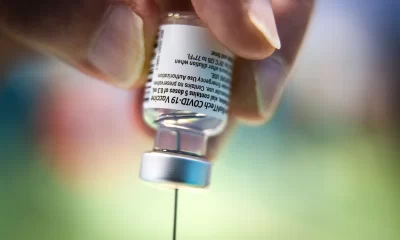It’s the season of corn, and some of us have seen people eating roasted or cooked corn and have not bothered to include it in our diet. Corn is a food, but many of us eat it as a snack.
One of the ways to maintain good health is to ensure we eat foods in season. Some crops are seasonal, and it’s always good to take advantage of them the moment they’re harvested.
According to Healthline, corn is a great source of fiber, vitamins, and some minerals. There’s no country in the world where corn is not eaten and people embrace it in its season.
You can use it to make different kinds of foods or eat it directly boiled or roasted. Here are the health benefits of roasted or boiled corn and why you should be careful while eating it:
1. Corn is rich in a yellow carotenoid pigment known as lutein, which is recommended for those who have eye diseases such as cataracts. Lutein is one of the components of our eyes. This is why corn benefits eye health.
 This yellow carotenoid in corn also contains zeaxanthin, which is equally good for our eyes. However, you have to be careful and eat it moderately because it increases your blood sugar level. This can cause diseases related to diabetes, especially in older people.
This yellow carotenoid in corn also contains zeaxanthin, which is equally good for our eyes. However, you have to be careful and eat it moderately because it increases your blood sugar level. This can cause diseases related to diabetes, especially in older people.
2. Corn is a great source of fiber, which can help resolve digestive issues such as rupture in the part of your large intestine. If your food is not digesting properly, you can eat corn to aid your digestion, especially roasted corn.
This can boost the health of your intestines. However, if you are trying to lose weight, you might have to be careful with the way you eat corn. It can add to the level of calories in your body, especially for people with obesity.
A study has shown that some people who ate corn reported an increase in weight gain. Moreover, it’s not healthy to get all your calories from carbohydrates.
3. It contains plant-based nutrients that can work as antioxidants in our bodies. It’s packed with nutrients such as vitamin C, magnesium, and potassium, which makes it highly nutritious.
However, some parts of the world genetically modify their corn. They don’t plant it naturally the way we do in this part of the world, and this can be dangerous to health. Some farmers in this part of the world use chemicals like pesticides and fertilizers to increase corn production.

 Health1 week ago
Health1 week ago
 Latest2 days ago
Latest2 days ago
 Trends3 days ago
Trends3 days ago
 Crime1 week ago
Crime1 week ago
 Energy6 days ago
Energy6 days ago
 Latest1 week ago
Latest1 week ago
 Aviation1 week ago
Aviation1 week ago
 Latest1 week ago
Latest1 week ago

